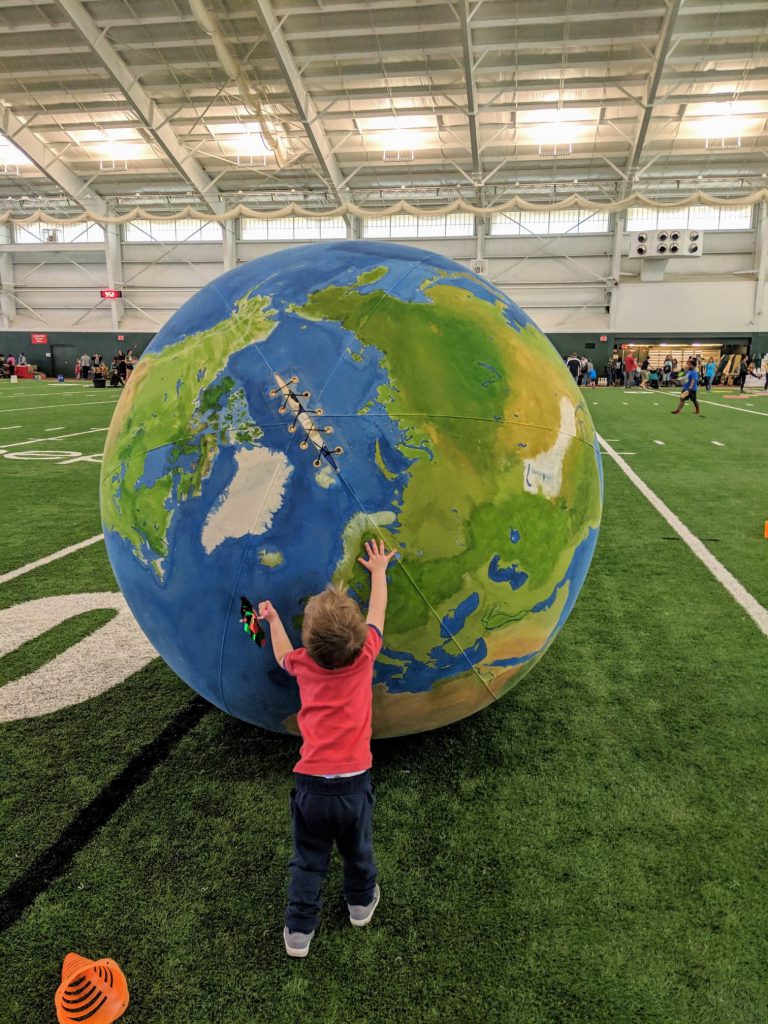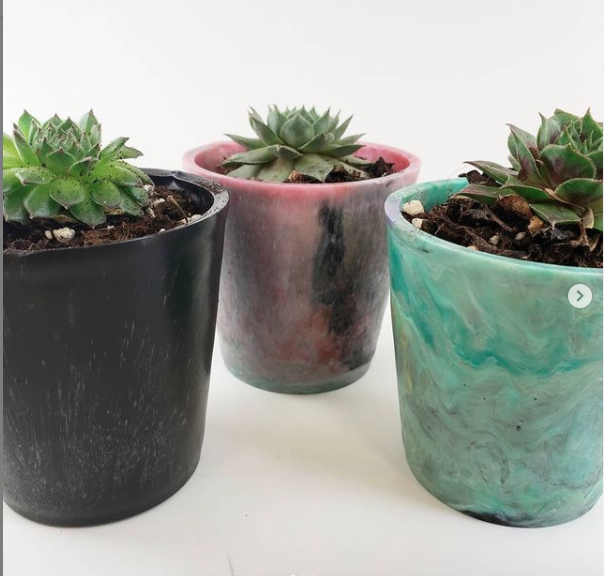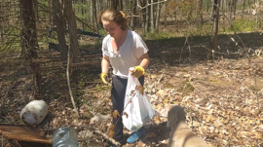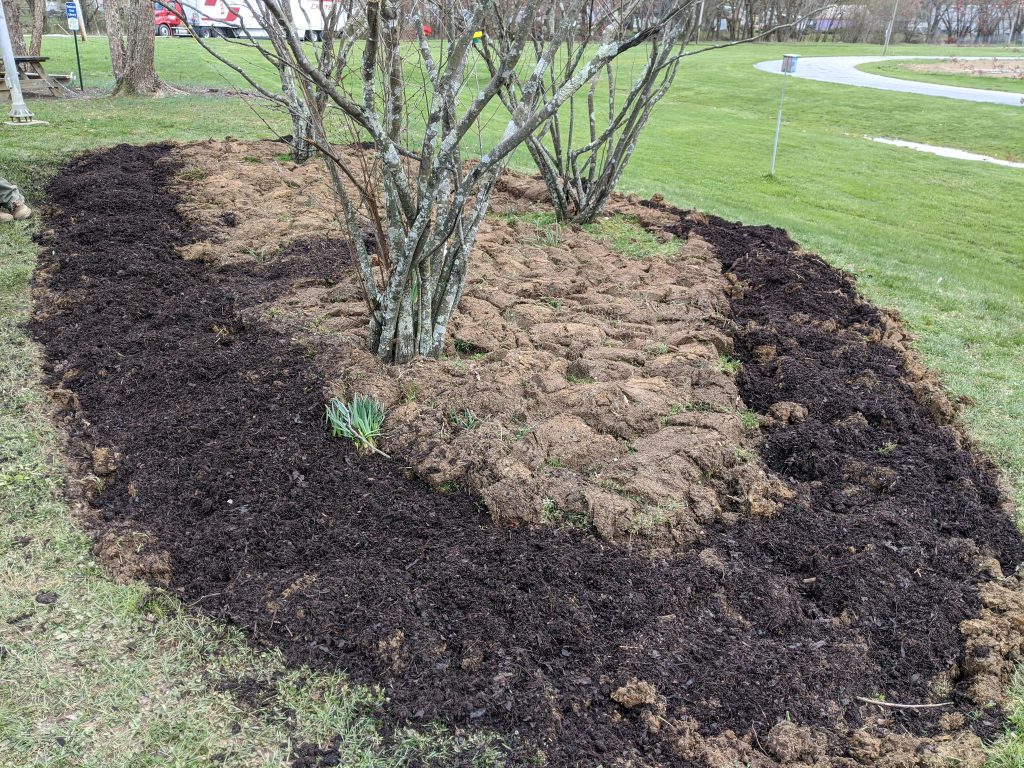
Everyday is Earth Day if you’re a young naturalist! But the rest of the world will join us in celebrating next Thursday, April 22.
On Earth Day, we like to reflect on what we love about the Earth (see: every virtual field trip we’ve done this year for some examples). Then we like to say “thank you” by doing something to help take care of it!
What is one way you take care of nature? Tell us about it on this week’s virtual field trip! Our friends share some of their favorite stewardship activities in this post.
Join the zoom field trip on Friday, April 16 at 10:30am.
Get inspired by a few of these ways our educators help the Earth.
How will you help? Share a story or picture to tell us how you will take care of nature!
Virtual Field Trip: Friday
, April 16 at 10:30 amThis Friday, share how you celebrate Earth Day with us on our virtual field trip! Bring a story or object to show us. It could be something in nature that you love. Or it could be something you do to take care of nature.

Our naturalists will show some ways we help take care of the earth: removing invasive plants, composting our waste, and more! Get inspired with us!
If you haven’t registered for past virtual field trips, sign up below to get the link in your email:
This will be our last public virtual field trip until May or June. We’ll announce virtual events on Rural Action’s facebook and newsletter. Teachers and groups can still contact us to schedule a private virtual (or in-person) field trip! Email darcy@ruralaction.org.
How do you take care of nature?
We love the forests, creeks, and fields of Appalachian Ohio. That’s why we take care of them, just like they take care of us. We want these places to be healthy for everyone to enjoy for a long, long time.
There are many ways, big and small, that you can help nature thrive! Rural Action’s educators shared a few things they do:
Madison: Cleaning up Litter
When I think of Earth Day
, I think of a day dedicated to honoring the earth. I also think about how human actions can negatively affect the earth, or we can take action to help care for our planet. One way I like to take action is picking up litter!As we all know litter can be anywhere: road sides, public parks, in rivers and lakes. Pretty much anywhere you can think of, if you look long enough you will find litter. All these places are ecosystems of their own, and can be negatively affected by human waste.

In this picture
, I’m picking up trash from my backyard. Before there were garbage trucks that drove to each house every week, many people had a section of their yard dedicated to being their own landfills. Many houses still have remnants of these household landfills left over.When picking up litter be sure to stay safe! A few things you will need to get started:
- Gloves (thick gloves will help make sure you don’t get cut by any trash and will keep you clean)
- Trash bags! (If possible try bringing a trash bag for recyclables and a second bag for things that need to go the landfill)
- An adult (check in with a trusted adult about what you’re doing and where you’re going before you get started)
- Brightly colored clothes (this is especially important if you plan to do a litter pick on road sides, the bright colors help cars see you from a distance)
By helping to pick up litter you will work to prevent trash from polluting the waterways
, forest, and many other ecosystemsEmily: Getting around without cars
I love walking places if it is safe for me to do so. I can see the insects buzzing around my face
, the different trees I pass, and the friendly faces of my neighbors.When places are a bit too far for me to walk to, I ride my bike. I always wear my helmet and choose routes that have the least number of cars. I like biking because I can feel the wind on my cheeks, get some exercise, and still move slow enough to observe my surroundings.

Sometimes I ride the bus. The bus allows me to go farther distances in bad weather
, like from Athens to Albany or Nelsonville. I enjoy riding the bus because I get to see new people that live in my community and see a route with houses and streets I don’t always see.I do have a car, because sometimes I go places I can’t reach by bus, biking, or walking. Most cars run on gasoline, a liquid made from crude oil pumped from a well that reaches deep below our feet. Some cars run on electricity that can come from burning coal, from the sun’s rays, or even wind turning a turbine like a pinwheel. Cars that run on fossil fuels, energy that comes from the ground and takes millions of years to form, release pollutants that are bad for our lungs to breathe in and bad for the climate. The smoky grey dust that comes out the tailpipe of a car contains greenhouse gases. These gases trap heat within the atmosphere of earth, changing the temperature of our planet over time.
Sometimes we need cars to get around, especially in places like southeast Ohio. We don’t have subway systems or passenger train to carry lots of people efficiently like New York City. But cars are not the healthiest transportation for our environment. To take care of nature, I walk or bike to places I need to go whenever possible. I take the bus with other folks to reduce the amount of cars out on the road when I can’t walk or bike.
Try walking, riding your bike, or taking the bus to your next destination!
Mia: Planting a pollinator garden
Mia is planting a garden at the Glouster library. She is choosing plants that are native to southeast Ohio
, plants that have grown around here for thousands of years.These plants are good food for the bees, butterflies, and insects around here! This garden will help these pollinator insects thrive. Visit the Glouster library to see what will pop up in this garden!

How will you help the Earth this Earth Day?
Press the “+” button below to add your favorite ways to help the environment. Perhaps you’ll inspire someone to try some thing new this Earth Day!